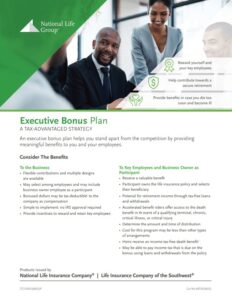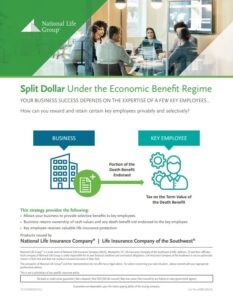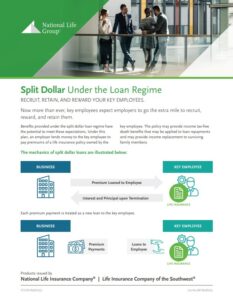July 17, 2024
The Shackles are Broken
A Recent Ruling Bans Non-Compete Clauses, Paving the Way for Nonqualified Executive Benefits.
On May 7, 2024, the Federal Trade Commission (“FTC”) published the Non-Compete Clause Rule (“the Ruling”), in which the FTC states that non-compete clauses are an unfair method of competition. Therefore, effective September 4, 2024, the Ruling bans new non-competes with all workers as defined below.
Note the Ruling is currently being challenged in the court, as several lawsuits have already been filed. Most recently, in Ryan LLC v. Federal Trade Commission, the court ruled in favor of the corporate taxpayer. The court concluded that “the text and the structure of the FTC Act reveal the FTC lacks substantive rulemaking authority with respect to unfair methods of competition.”
To follow the legislative updates regarding the Non-Compete Clause Rule, please see the United States Chamber of Commerce page entitled Cases – Antitrust and Competition Law.
Existing Non-Compete Agreements
For non-compete agreements entered into before September 4, 2024, the Ruling distinguishes senior executives from other workers as follows:
- For “senior executives,” existing non-competes may remain in force after the Ruling’s effective date.
- A “senior executive” is defined as a worker who was in a “policy-making position” and received at least $151,164 in annual compensation in the prior year.
- A “policy-making position” includes a company’s president, chief executive officer, or any other person who has policymaking authority for the company.
- For all other workers, existing non-competes become invalid and unenforceable after the Ruling’s effective date.
- Workers include employees, independent contractors, interns, volunteers, and more.
- Importantly, employers must provide these workers notice that the existing non-compete will no longer be enforceable.
Sale of Business Exception
The Ruling does not apply to non-compete agreements entered into by a person pursuant to a bona fide sale of a business entity. A bona fide sale is one made in good faith, and not one whose sole purpose is to avoid application of the Ruling.
Elevating Retention Strategies in the Post-Non-Compete World
This ruling has sparked significant discussions within the business owner community. The elimination of the non-compete agreement is intended to promote a freer labor market – allowing an increase in mobility for employees, increasing competition, and promoting innovation. While this change fosters an employee renaissance of sorts, it also forces small business owners to reexamine how they will retain top talent. Employers have long used noncompete agreements to maintain a competitive advantage in their industry, using them to restrict employees from leaving to join the competition or starting a new/competing business altogether. With this employee retention strategy eliminated, what options are available for business owners to retain top talent? Nonqualified executive benefit plans!
Offering nonqualified executive benefit plans can be an employer’s competitive advantage when seeking to enhance retention efforts and attract top talent. Offering executive benefit plans shows a commitment to valuing and rewarding an employee for their contributions. These plans allow for selective participation, allowing you to pick and choose which employees you offer the benefit to. And each agreement can be customized to help benefit each employee in a unique manner.
Key Takeaways
With non-compete agreements becoming a thing of the past, the Ruling presents an opportunity to contact your business owner clients to discuss their employee retention strategies. You should:
- Discuss the Ruling with your business owner clients; suggest they identify any existing non-competes and distinguish those with senior executives and other workers.
- Review the statistics about employee retention:
- 1 in 2 U.S. employees are open to leaving their organization;
- “Pay/Benefits” is the most common single reason employees left their job in 2023; and
- Of those looking for new jobs, 58% say they’re looking because they want to significantly increase their income or improve upon benefits package.
- For more information see: Global Indicator | Employee Retention & Attraction – Gallup.
- Understand the increasing importance of nonqualified executive benefit plans. The following are the most common among small business owners:
- Executive Bonus Plans
- Split Dollar Arrangements
- Nonqualified Deferred Compensation
Don’t delay! Talk to your business owner prospects and clients to help them understand how a nonqualified executive benefit plan can help make their business a destination for top talent, helping pave the way towards sustained leadership and long-term success.
The Ruling
Federal Trade Commission | Non-Compete Clause Rule, 89 FR 38342; 16 CFR Parts 910 and 912.








